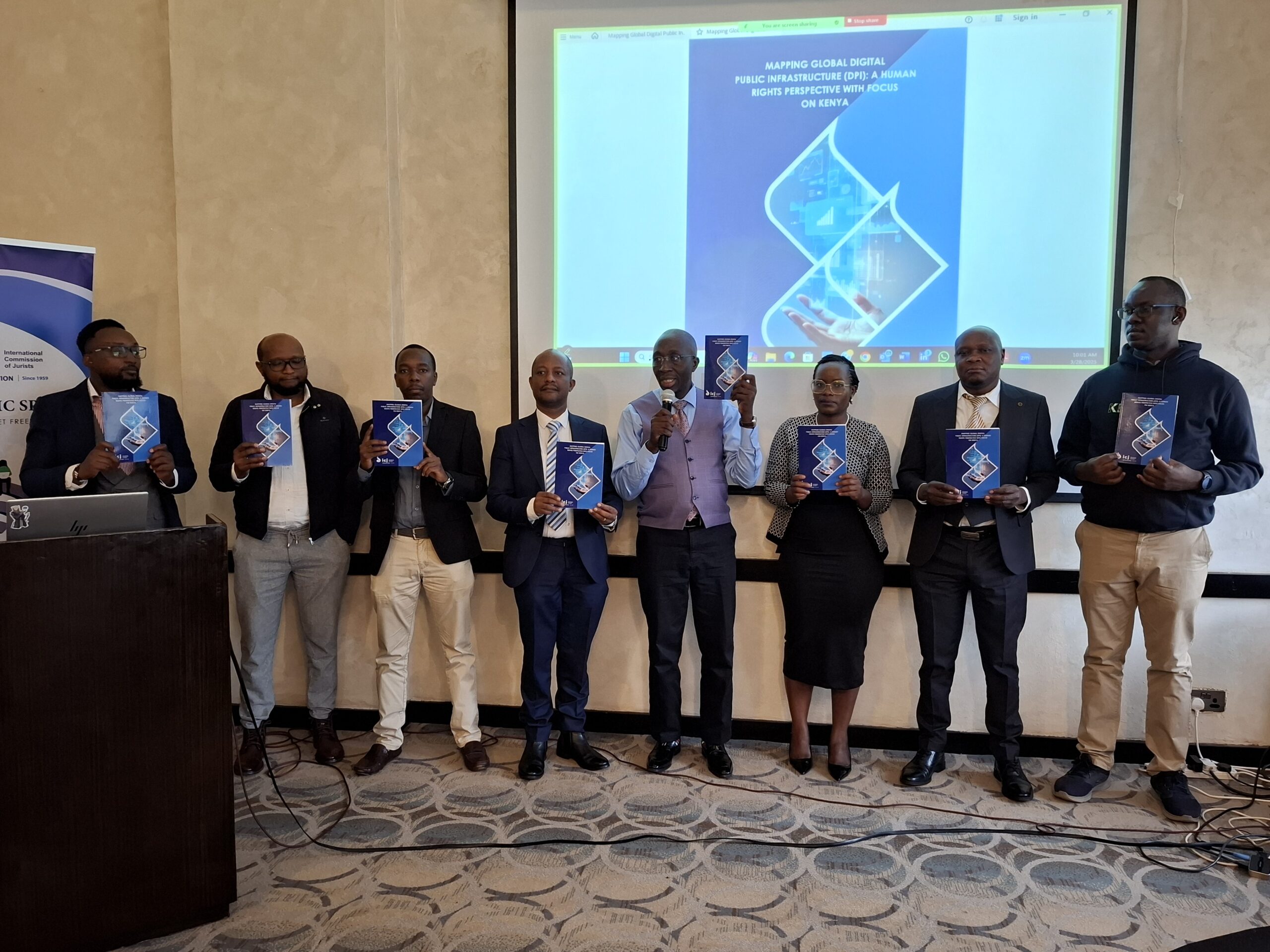NAIROBI,Kenya – The Kenyan Section of the International Commission of Jurists (ICJ Kenya) has emphasized the need for a human rights-centered approach in the development of Digital Public Infrastructure (DPI) in the country. Speaking at a research dissemination workshop , ICJ Kenya Chairperson Protas Saende highlighted the rapid expansion of digital infrastructure in Kenya and the potential risks it poses to human rights.
“As many of you are aware, Digital Public Infrastructure has become a cornerstone of modern governance, economic advancement, and social inclusion. Kenya, with its robust technological ecosystem, has not been left behind,” Saende remarked. He pointed to projects such as Huduma Namba, digital financial inclusion, and biometric data collection initiatives like WorldCoin as key indicators of Kenya’s digital transformation.
While acknowledging the benefits of DPI, including efficiency and innovation, Saende warned of the accompanying risks, such as data privacy violations, state surveillance, and digital exclusion. He urged stakeholders to ensure that digital governance structures align with human rights principles.
The workshop, themed “Mapping Global Digital Public Infrastructure (DPI): A Human Rights Perspective with Focus on Kenya,” aimed to present research findings on DPI trends globally and assess Kenya’s trajectory in adopting these digital systems. Participants included representatives from government agencies, civil society, academia, and the private sector.
“The fundamental question we must ask ourselves is: How do we ensure that technology serves humanity and not the other way around?” Saende posed to attendees. He stressed that digital identity systems, financial platforms, and data exchange mechanisms must be governed by strong legal frameworks to prevent misuse and marginalization.
ICJ Kenya called for robust data protection laws, increased transparency in digital governance, and meaningful public participation in policymaking. The organization also reiterated its commitment to advocating for a digital future that respects privacy, freedom, and equality for all Kenyans.
The workshop provided a platform for multi-stakeholder engagement and policy advocacy discussions, with the goal of shaping a digital ecosystem that prioritizes human rights. As Kenya continues its digital transformation, the emphasis on human dignity and legal safeguards will remain critical in ensuring an inclusive and rights-respecting digital landscape.











